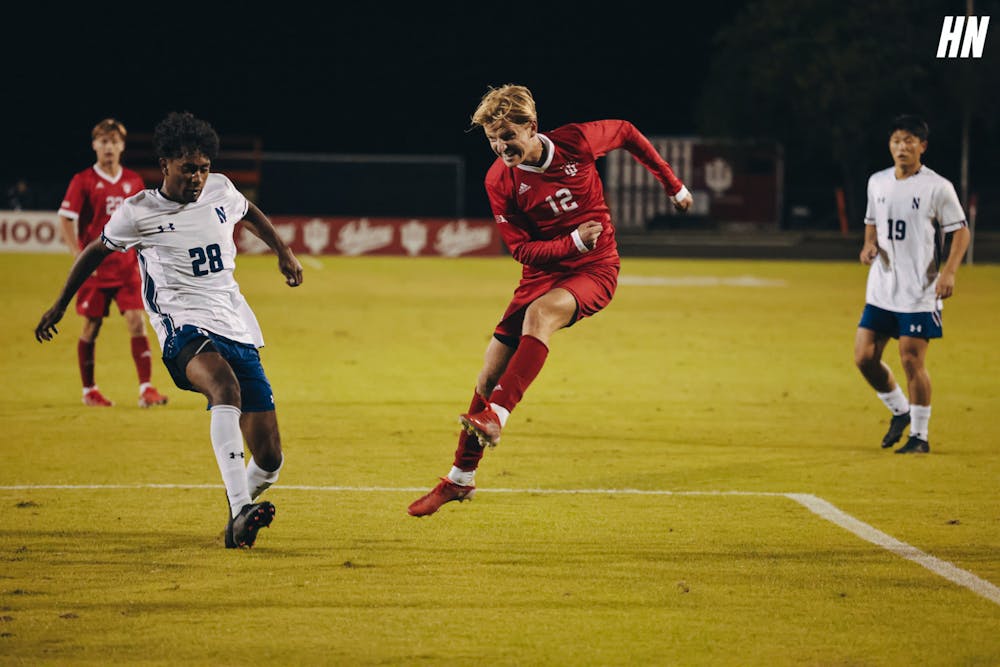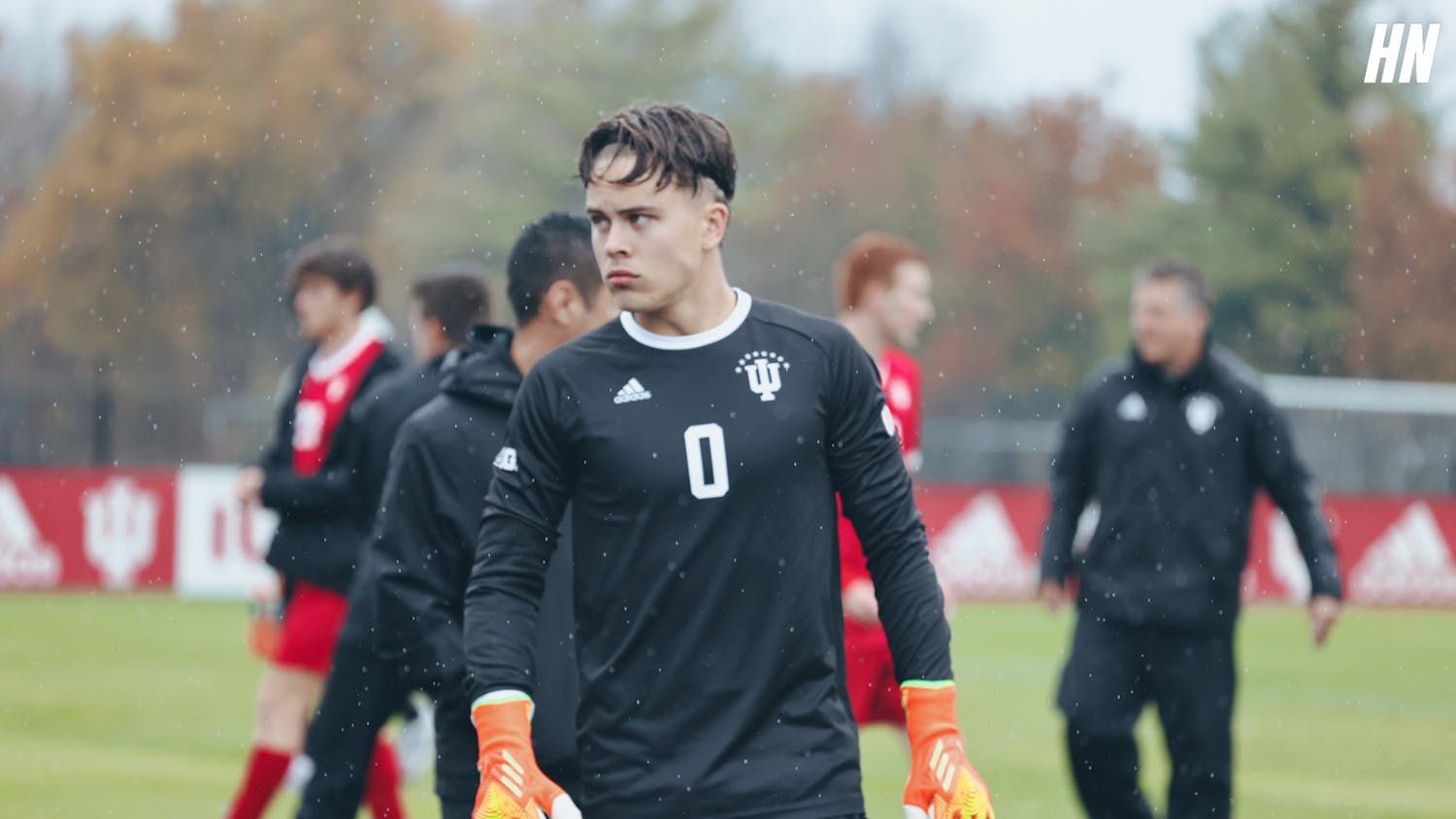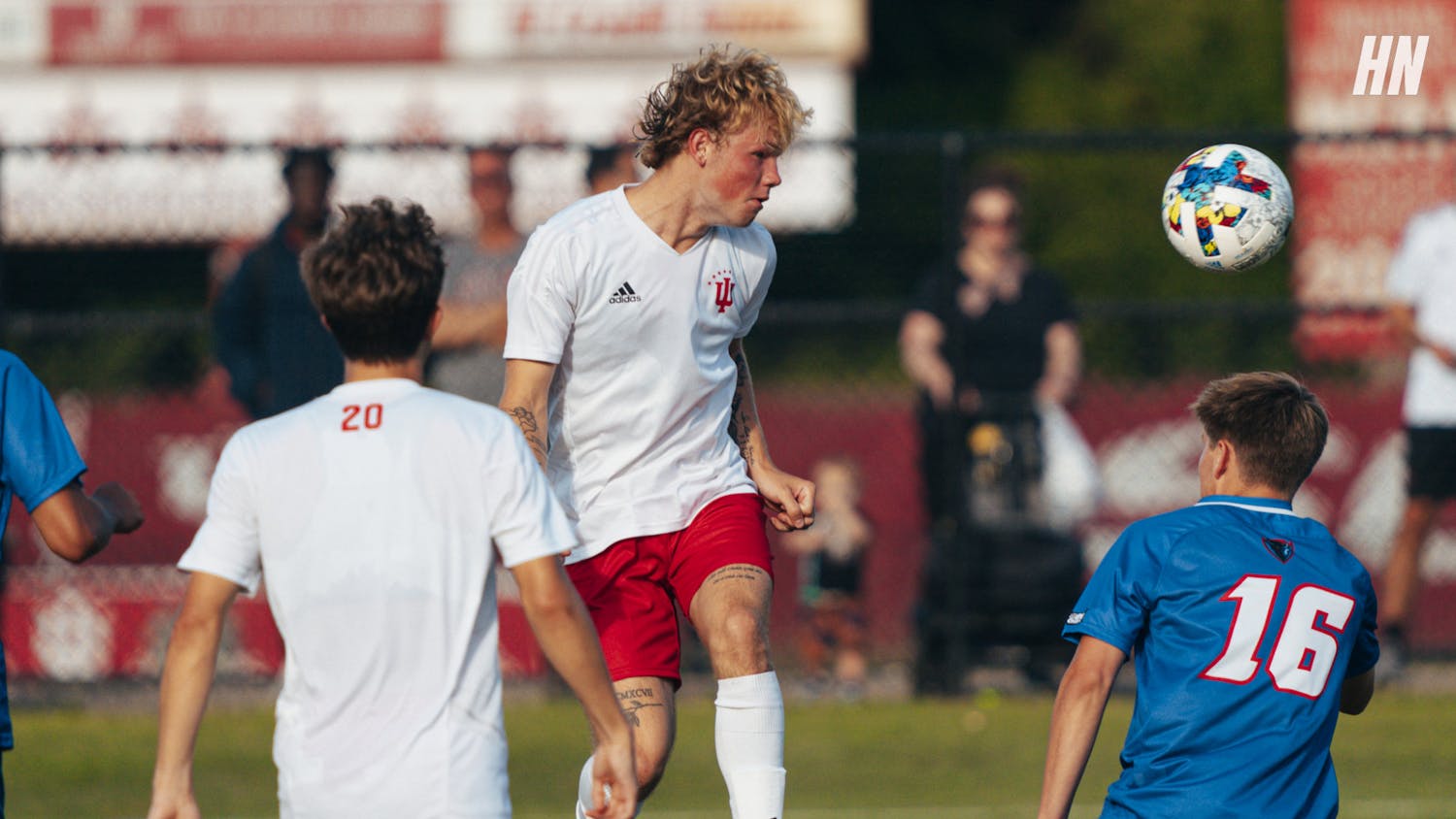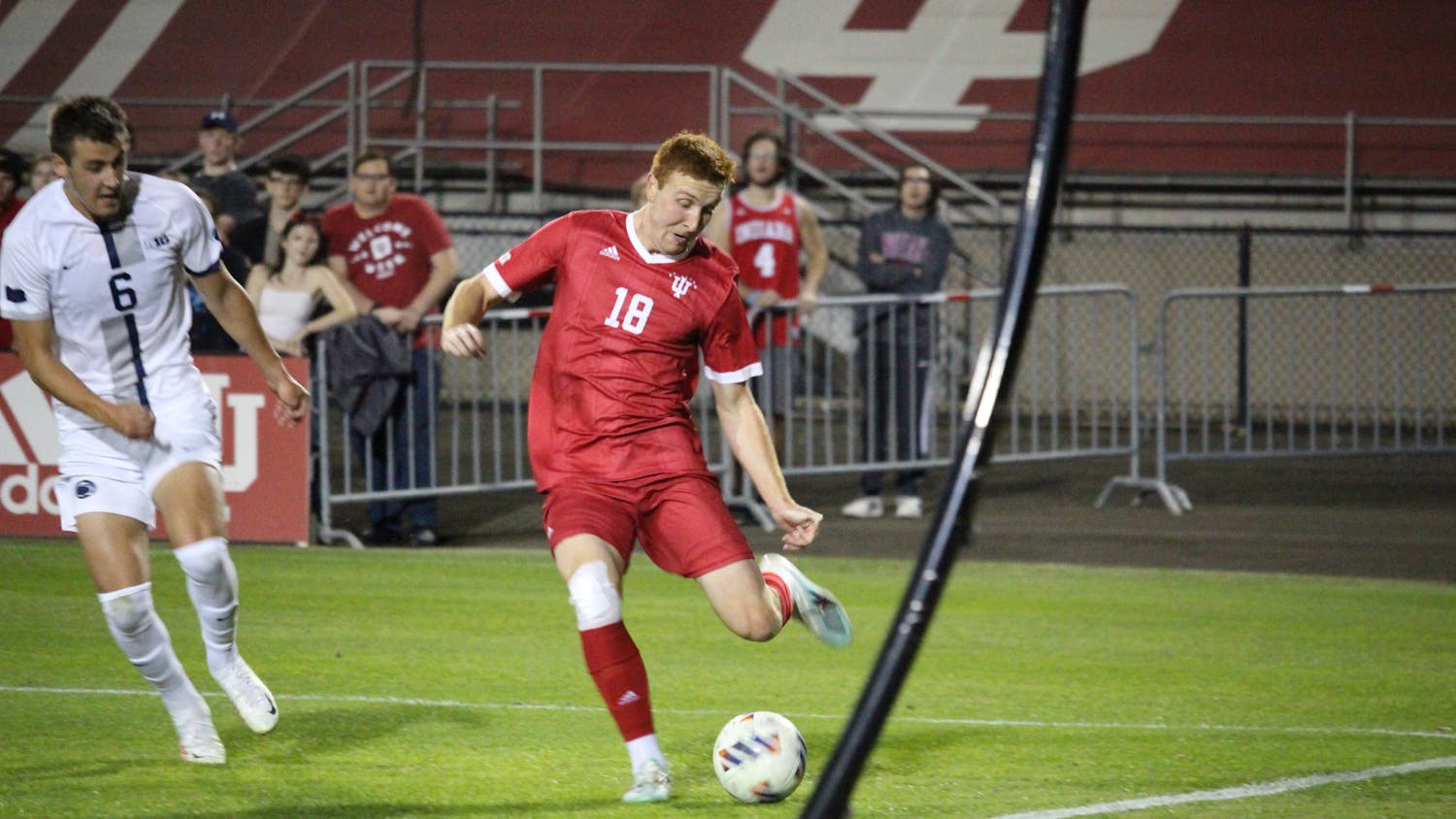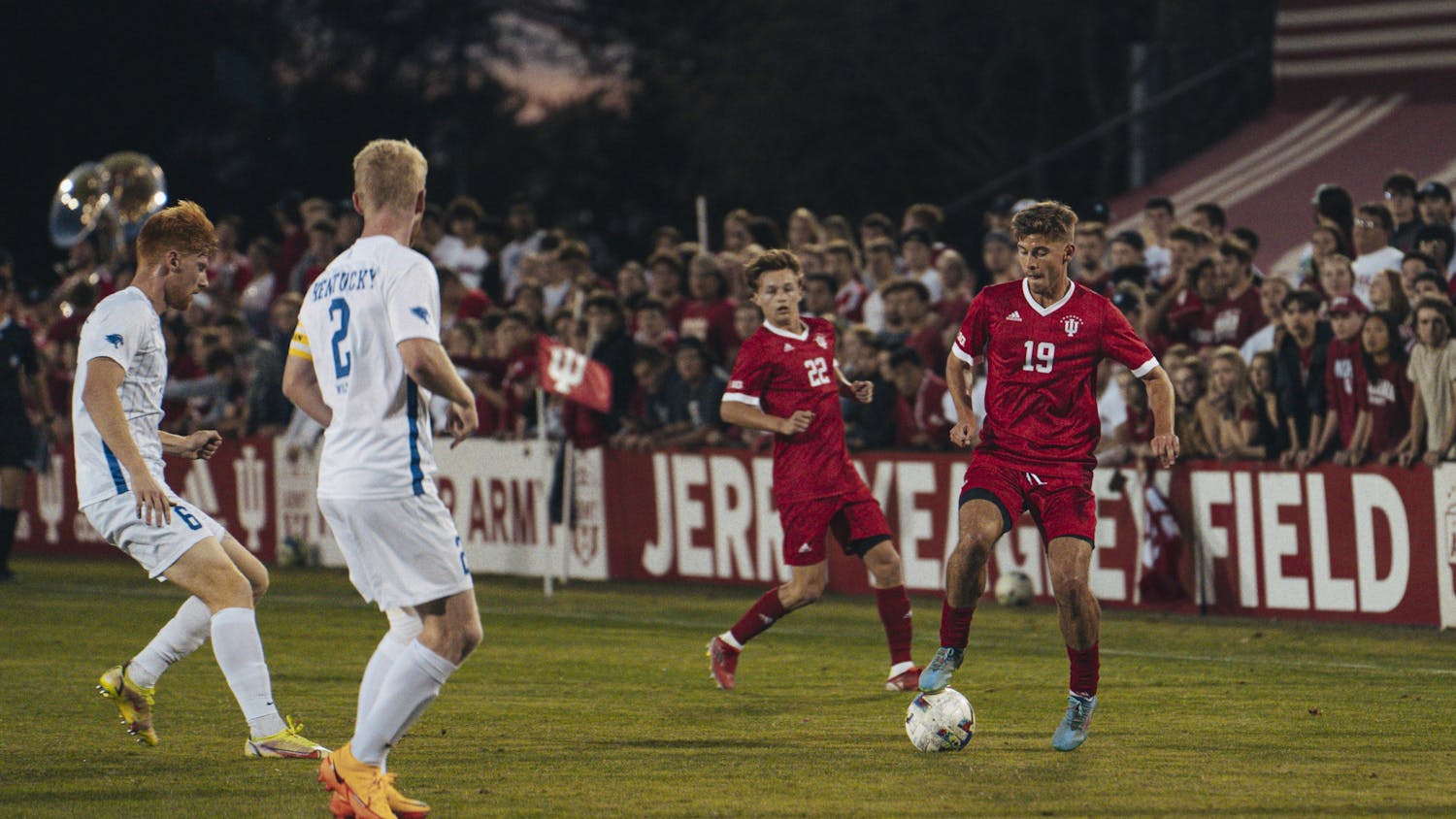Quinten Helmer peeled toward the center edge of the 18-yard box, quietly shaking his defender. Helmer called for the ball, his left hand positioned waist-high in front of his body.
Five opposing defenders synchronously turned their heads toward his position. Indiana teammate Tommy Mihalic, who was distracting all of them, diagonally passed to Helmer.
Helmer's lane on goal was clear. First touch, second touch, and the strike from his left foot. The opposing goalkeeper stood fixed on the goal line. The ball curled into the left corner of the net — Helmer's first collegiate goal — midway into his fourth season.
Helmer said in an interview that he didn't perform any unique celebration for the milestone. Somersaulting and firing an imaginary bow, kicking the corner flag, or repeatedly tapping an imaginary watch. None of it. Indiana had been losing. The goal served as only the equalizer.
Yet, Helmer emphatically hurled his left arm forward in a windmill motion — a warranted display of emotion by the redshirt junior. Teammates dodged Helmer's celebration, which probably would have knocked them unconscious, and congratulated him.
Spectators and those watching live on television witnessed the Netherlands native's blonde middle-parted hair flop up and down. But his slightly shorter older brother Jeremy with closely cropped brown-hair — a talented player in Europe — didn't. Not because he didn't want to, but because of the time difference.
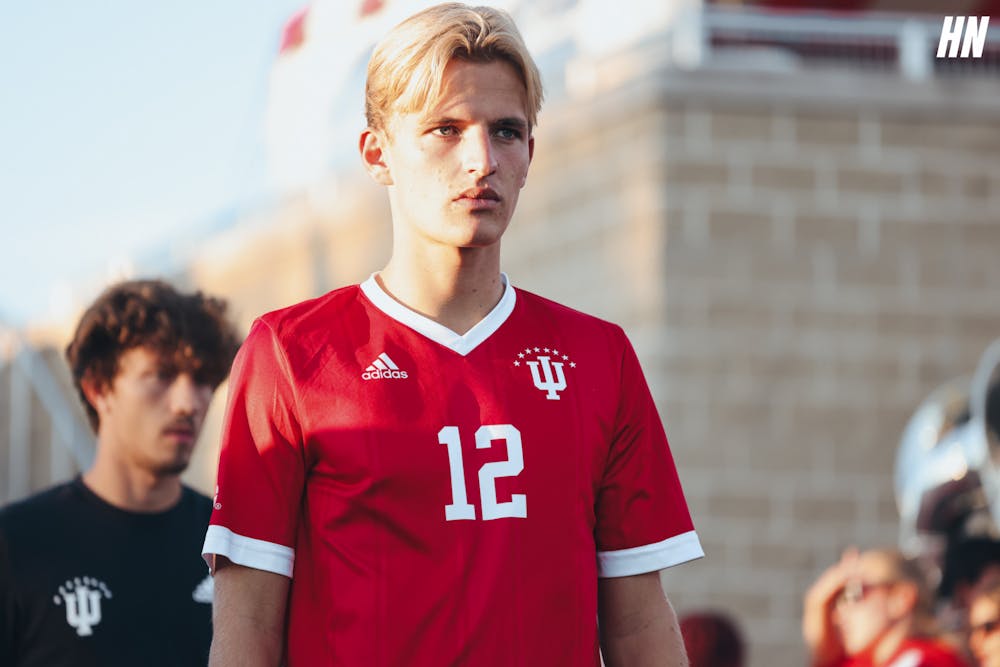
Indiana's late-September match started at 8 p.m. EST. By the time Quinten scored, clocks in the Netherlands likely read close to 3 a.m. Jeremy was sound asleep. Upon awakening and seeing Quinten's messages in the family group chat, Jeremy checked Twitter for the replay. He would have enjoyed calling Quinten that morning, but remember: 9 a.m. in the Netherlands equates to 3 a.m. at Indiana's campus. When Quinten plays, Jeremy sleeps. When Jeremy wakes, Quinten sleeps.
"My mom just said, 'Keep going, nice, we're happy for you,'" Jeremy expressed in his Dutch accent. "I searched for the goal. He was really calm and collected in the goal. He took it with the left. I just gave him compliments of how calm he was, and happy that it was his first goal. Really happy WhatsApp [messages]. And then, on FaceTime, we talk about it."
Quinten's intertwined athletic and academic schedule creates narrow pockets of time for the brothers to talk on the phone. And Jeremy, who has played for AZ Alkmaar in the Eredivisie, the highest level of professional soccer in the Netherlands, is occupied rehabbing from a broken shin he suffered years ago. So, they settle to talk briefly once every few days, which coincides with Indiana's typical two-match-per-week schedule. Their conversations aren't just about soccer, but include academics and relationships.
Quinten first joined AZ Alkmaar — which operates as a professional soccer organization — when he was 10 years old. Of course, he wasn't playing professionally at that age. But AZ's premier status in the Eredivisie trickled down into the younger age groups at the academy. The frank message: if you don't improve, you're out. It's the Netherlands. Soccer is commonplace.
Working through the pressure-filled environment, Quinten won the under-13-years-old national championship, and even slightly downplayed the accomplishment in a recent interview. At that age group, developing individual talent was sought after. Quinten treasures the under-16 national championship to a greater degree, saying he was more involved.
"(The U-16) was a lot more like the real world," Quinten said. "A lot of my teammates would end up playing for the [Netherlands] national team or they would get a transfer to a bigger club in England or Spain.”
Jeremy was only in attendance for the U-16 national championship. He was playing in his own match during Quinten's U-13 championship. When they lived in the same country, the brothers attempted to watch each other's games whenever possible. Quinten revealed that he's more nervous watching Jeremy, than playing himself. Yet, because Jeremy trained at the same academy three age groups above, or even higher because of his talent, match times sometimes conflicted. Or, road games split them up — a preview of the current time difference.
Until one reaches the U-18 AZ team, teenagers primarily practice with players their same age. When Quinten was around this age, he occasionally trained with Jong AZ, the AZ Alkmaar reserve team, which competes in the Eerste Divisie, the second-highest tier of soccer in the Netherlands. Think of it as Chicago Fire FC competing in the MLS, and Chicago Fire II participating in MLS Next Pro.
Jeremy was already playing for the highest AZ squad in the Eredivisie, so the brothers didn't train together. Once or twice, Quinten's monthly talents earned him training time with the professional AZ first team — but when Jeremy was injured.
"That was really unlucky because it would have been nice to train with Quinten," Jeremy said. "But yeah, he did a good job and he could train with the first team."
It's as if the world conspired against the brothers playing or conditioning together. Well, that could be because they performed flawlessly when competing on the same side.
Growing up, Jeremy, an attacking midfielder, challenged Quinten to steal the ball from him, irritating his younger brother. There was always tension. But the competitiveness created fond memories. The brothers once slide-tackled each other in the airport, bumping into other people and having no regard for their dress clothes.
"My cousins, who we played football with, they would always tell that we were going to be in a fight,” Jeremy said. “But when we were on the same team, we were beating everything in the city. Here in the Netherlands it is a little bit normal to, if you go with a new team on the field, that you can say we want to play and winner gets the field. We always did that and I think we never lost."
Quinten, Jeremy, and cousins formed five-player rosters. Like how 5-v-5 pickup basketball fuels the Hoosier State, five-player soccer teams battled for control of miniature fields in the brothers’ home city of Amsterdam. Some playing surfaces are artificial grass, while others consist of pavement street courts.
"If we fell, we just had a lot of pain and scratches on our arms and shit," Jeremy said. "So sometimes we go home bleeding and everything, and our mom was like 'Oh, you did it again.’”
If someone wonders where Quinten developed his powerful left-footed strikes, it's at least partly because he casually played with older players, such as Jeremy. He had to shoot hard to overcompensate for the physical gap.

During the 2019 Spring in Amsterdam, Quinten entered his name into a portal that attracted the attention of college coaches. He valued his education, while carrying aspirations to continue playing soccer. Schools responded, and he quickly narrowed the decision to either Duke or Indiana. He felt more comfortable with the latter program, joining Indiana's No. 2 recruiting class that season, according to Top Drawer Soccer.
Quinten's recruiting process lasted roughly two weeks, taking place virtually. Phone calls with coaches and touring Indiana's campus online provided a brief understanding of the location. That is, until he hopped off his flight in Indianapolis. Quinten's first in-person tour of the state of Indiana was move-in day.
"I expected there to be little, but there's literally nothing on the way from Indy Airport to here," Quinten said. "All that I'm used to is a big city. I would say it was a culture shock. I was like, wow, it's really all cornfields and fast food restaurants and some trucks on the way."
Rather than taking the shuttle ride to campus, two Indiana-raised freshmen teammates, Luke Boha and Andrew Goldsworthy, picked up Quinten in their car. Food destinations started the initial conversation. Meanwhile, Quinten attempted to perfect his English. It wasn't bad, but he only conversed through the Dutch language back in Amsterdam.
"They were curious too, how this kid from Amsterdam ended up at Indiana, especially with not that many international kids ending up here," Quinten said.
Quinten was only one of three international student-athletes listed on Indiana's 30-player roster. The other two were transfers, having already played for other programs in the states. One season later, those players graduated, and only Quinten remained. And since then, Quinten is still the only international player on Indiana's roster.
Quinten was immediately thrust into a foreign environment, playing for a new coaching staff, surrounded by unfamiliar teammates. He quickly befriended Roman Celantano, John Bannec, and Boha, the latter still on Indiana’s current roster. Back home, Quinten played for eight years at the same academy. There were new stylistic changes on the pitch.
"Playing in that academy was very ball-driven, especially the country I'm from, it's all possession based," Quinten said. "You're more so focused on being technical. I got here and I thought I knew everything about soccer… it was just a totally different game."
The culture was different, too. Quinten proclaimed every American soccer player recognizes Indiana's perennial success. Head coach Todd Yeagley told Quinten what the program stands for during his recruitment process, but it took his entire freshman year to adapt. He spent group practice and gym sessions acclimating to the team's culture. Indiana's family-based environment focused on the whole team, rather than individual talent. Back in Amsterdam, you were primarily playing for yourself at the academy level.
Still, Quinten wanted to upkeep two skills he developed in the Netherlands: His individual training preserved shot-finishing and passing.
Quinten didn't play his freshman year. And the absence of his family impaired his self-motivation.
"I was just wanting to impress my grandpa, my dad, and then my brother," Quinten said. "I wouldn't say I have an issue motivating myself, but it takes a lot more because I know they're not here to watch. So I kind of lost my main purpose of playing, which was difficult.”
People have asked Quinten, aren't you bitter that teammates from your AZ national championship squad have been promoted to famed European leagues, while you're playing Division I soccer? Nope, it's the opposite. The pictures remind Quinten of the joyous memories.
In fact, at the college level, Quinten has been able to soak in more of those cheerful moments, rather than worrying about someone taking his spot in the European organizations. During Indiana's soon-to-be dominating victory this season over top-10 Akron in early September, Quinten smiled on the field at teammate Samuel Sarver, saying, "We got this."
And don't forget: his education. During Quinten's redshirt freshman season, he was named the recipient of the Elite 90 award for the 2021 NCAA Division I Men's Soccer Championship. The award is presented to the student-athlete with the highest cumulative grade-point average participating at the finals site for each of the NCAA's championships. At the time of receiving the award, Quinten garnered a cumulative 3.97 GPA as an economics consulting major.
"A lot of people here in the Netherlands are scared to make this choice, to go overseas for four years in your student time," Jeremy said. "We're not surprised, because we knew he's so smart. But then, the what's it called, the marks, the results from tests he got, it was crazy that he's been so good from the student side also. I'm really proud, and I always think he's a good player."
Quinten's intelligence in the classroom carries onto the soccer field. One day before the match where he scored his first collegiate goal, coach Yeagley praised Quinten's movements, spacing and ability to read the game well. After sitting on the bench freshman year, Quinten appeared in 18 matches across the next two seasons. This season? That number has already reached 17 matches, 11 of which he's started. The NCAA Tournament hasn't even begun yet, and this year, the Hoosiers achieved their ninth consecutive top-16 national seed.
"Some of the reasons he's on the field more is to get others to be in better spots to seek sequences more successfully," Yeagley said. "So that's why you're seeing more of Quinten this year."
Former Indiana standout Victor Bezerra, currently playing for the Chicago Fire, possessed similar qualities. Bezerra's departure has seemingly presented the opportunity for Quinten's soccer IQ to emerge.
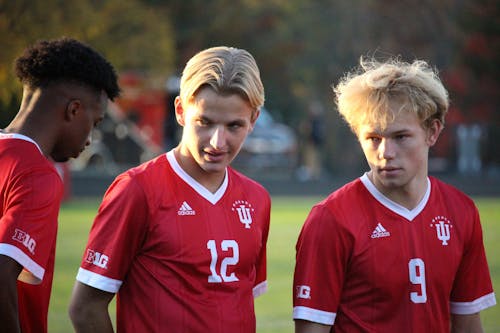
Like Yeagley said: Indiana fans are seeing more of Quinten this year. His family abroad doesn’t as much. But Jeremy tries not to let that bother him.
“Instead of seeing a little bit of negative like ah shit, we cannot watch you play, we're just happy that he's playing,” Jeremy said.
But above all, Yeagley has repeatedly discussed Quinten's confidence — joking it's the Dutch in him that comes out. And, that Quinten partly helps bring out the confidence of nearby teammates. Four minutes after Quinten's goal, Indiana's scoreboard favorably changed from 1-1 to 3-1.
At the final whistle, the Hoosiers put their 4-1 victory in the books over Northwestern. This was their first conference win this season, and at that point, the first time since Oct. 29, 2019, Indiana scored four goals at home against a conference foe.
Years ago, Quinten viewed that match from the sidelines. But against Northwestern, he lined up at midfield with his teammates, looking into the crowd of people.
